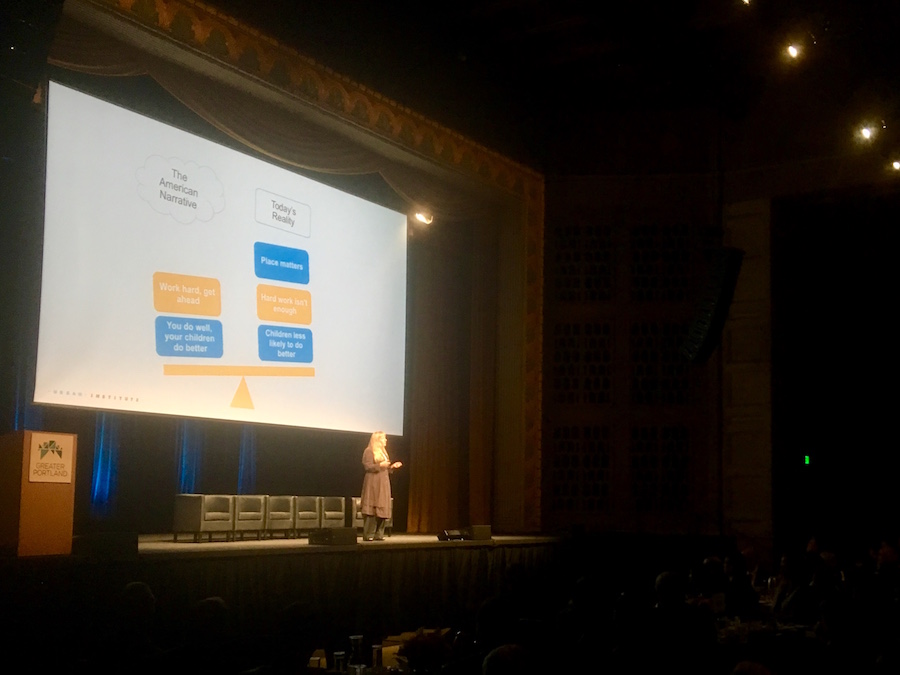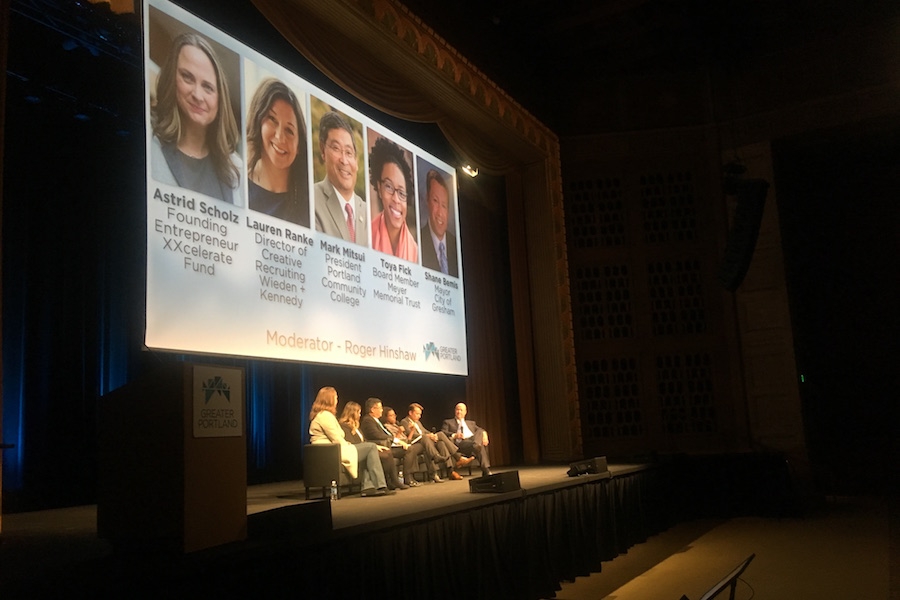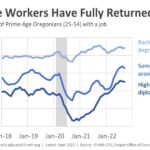Annual Greater Portland event focuses on attracting and retaining talent.
Workforce challenges took center stage as Portland business and policy leaders celebrated the metro area’s economic growth Thursday at Greater Portland Inc.’s annual economic summit.
The veritable high school pep rally for Portland economic development featured dancers swarming the stage, waving signs with bright statistics about economic growth. The key topic of discussion, an extraordinarily tight labor market, was framed as “celebrating people.”
Portland’s talented workforce, speakers said, has led to unprecedented economic growth over the past few years. The number of incubators and accelerators nearly doubled in the past two years, Greater Portland CEO Janet LaBar noted, from 38 to 70. Cryptocurrency trading platform Coinbase opened a Portland office in June, and synthetic diamond manufacturer Element Six constructed a $94 million factory in Gresham.
Yet the rising economic tide is not lifting all boats equally. Keynote speaker Elaine Waxman, a senior fellow at the Washington, D.C. social policy think tank Urban Institute, explained that wage gains have not kept pace with record employment. Earnings of full-time workers have actually declined, she said, as the gig economy and freelancing replace traditional office jobs. Even at large employers, Waxman sees “fissuring,” an increasing reliance on contract labors who get less benefits and legal protections.
“The recovery is not as meaningful as it could be for a lot of folks,” Waxman said.
Low-paying caretaker jobs are on the rise, Waxman said, along with high-paying and prestigious tech positions. The middle class, however, is experiencing a “hollowing out.”
 Elaine Waxman gives the keynote address.
Elaine Waxman gives the keynote address.
The greatest need for workers comes from the construction industry and related trades. Toya Fick of the Meyer Memorial Trust said the foundation is investing in Portland Community College and workforce development grant programs to fill the gap.
Surprise guest Dave Dahl, a reformed jailbird who founded Dave’s Killer Bread, encouraged training programs for felons in the trades. “There is a great need for skilled tradesmen and women,” he said, “what an opportunity for a felon.”
Other leaders spotlighted efforts to boost minority- and women-owned businesses. Astrid Scholz, founder of the XXcelerate Fund for women-owned startups, said women found businesses at twice the rate of men, and run them more efficiently. Yet they receive less venture capital and fewer commercial loans.
“You don’t have to be a raging feminist,” Scholz said, “to see there’s something wrong with that picture.”
Even esteemed ad agency Wieden + Kennedy is turning to experimental approaches to find talent. Director of recruiting Lauren Ranke promoted a new initiative called “The Kennedys,” that seeks to attract talent from outside the advertising industry.
Waxman called for employers to adjust benefits to adapt to the new economy. Freelance and contract workers, she said, need “portable” healthcare and paid leave. As union power declines (though arguably not in the Pacific Northwest), new arrangements will need to arise to protect workers’ rights.
“We need new arrangements that follow workers wherever they go,” Waxman said.
To subscribe to Oregon Business, click here.






